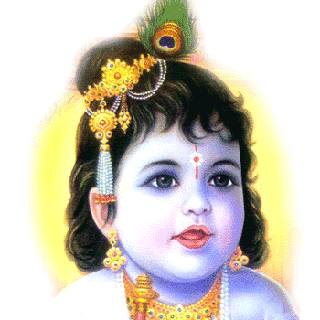 A few thoughts on re-reading Sudduth’s open letter explaining his conversion.
A few thoughts on re-reading Sudduth’s open letter explaining his conversion.
Saith Sudduth,
Krishna is the all-attractive Absolute who is manifested in the different religious traditions of the world. There is merging into impersonal Brahman. There are also distinctly theistic experiences in which the self encounters a personal God.
The ultimate being is either personal or not. Thus, it can’t be that both the aforementioned experiences are veridical, i.e. represent God as God really is.
I think Sudduth agrees; he goes on to explain that “merging” experiences are something like the devotee coming in contract with what some would call the “energies” of God. Of course, Indian philosophers like Sankara would disagree. And I don’t know why we should accept Sudduth’s claim that:
…that transcendental consciousness (the aim of nearly all religious traditions) is in fact variegated in nature.
I don’t know that there is any one general sort of experience which nearly all traditions aim at. Experiences of a loving god are not at all like the sorts of experiences monistic types profess, wherein, they say, there is no subject-object duality, but one just is non-cognitively aware of the ineffable One.
It is most fitting that God would seek to experience the love of the devotee in much the same way that he would seek to experience the suffering of the devotee (in the person of Jesus). In Christ God suffers with us. In Chaitanya, God loves with us. In each case, there is an important identification between God and us. God tastes the suffering that distances us from Him and the love that brings us near to Him.
I’d like to hear more about this “identification“. When theologians who’ve read Moltmann start talking like this, I think that more often than not, they’re sorely confused about the various ideas of sameness/identity. I’m assuming that Sudduth, being a philosopher, is not. So, in what sense is God “the same as” (“identified” with) the devotee?
Perhaps the answer is in this part of his letter:
…the GV tradition specifically views the relationship between God and the self as an inconceivable and simultaneous difference and non-difference (achintya bheda abheda tattva). This strikes a wonderful balance between the monism of Advaita Vedanta and the strong dualism of the Dvaita schools originating from Madhva (and also reflected in most streams of the Christian tradition). As I see it, the ways of unqualified oneness and unqualified separateness (between self and God) each tends ultimately to dissolve the love relationship between the self and God. Love requires a merging of two beings into one, yet without a loss of their individuality. This is inconceivable, but its truth is the precondition for the possibility of real love between the self and God. Consequently, I now accept a panentheistic metaphysics in which the universe and human souls are, to put it roughly, in the being of God.
If I understand him, he’s a negative mysterian about the relationship between God and devotee. It might at first appear contradictory (they’re numerically one, and they are not) but in fact the relation is something which can’t be grasped by us.
Honestly, I don’t see how this can be a “wonderful balance.” The mind has nowhere to rest; as with all negative mysterianism, a commitment has been made to simply think inconsistently, but insist that really, this is sort of just pointing at an inconceivable fact, an ungraspable one. This sort of move insulates one’s claim from refutation, but it also leaves unclear why anyone else should agree with it. (What claim?)
Moving on, Sudduth holds that
…GV has the intellectual resources for a reasonable inclusivist understanding of religion.
This needs some unpacking for non-philosophers. In philosophy of religion, “inclusivism” is the claim that the goal of religion (whatever one thinks that is) can be gotten by people outside the one true, or the one most true religion. (“Can be” – the general position is neutral about how often this happens.) The Roman Catholic theologian Karl Rahner famously stumps for this, and no small number of analytic Christian philosophers think this must be right.
I would be interested in why Sudduth thinks GV is particularly well off here. Is it better off on this score than Christianity? If so, why? And what sorts of religions might one gain the goal of religion through? And, what is the goal of religion? I would assume it is theistic – like, escaping the cycle of reincarnations and living in the presence of Krishna and his other devotees.
But then, Sudduth says,
…God-realization (or salvation) takes on diverse forms
But what sort of goal is this “God realization”? Is he saying that it takes monotheistic forms (like I just described) and also unitive, absolutist, “merging” forms (the ole drop of water going back into the ocean). What is the genus of which these two ends are the species, I wonder? It seem to me that there must be one, else the “cure” envisioned by his theology is weirdly ad hoc and disjunctive.
Moreover, what separates the sort of inclusivism he wants to endorse from being a type of religious pluralism (the view that the goal of religion can be acheived through all, or all major religions)? I assume there is a difference, which is why he says “inclusivism” and not “pluralism”. But what could it be? Might not Krishna also graciously offer pretty much any goal aimed at by any religious tradition? If not, why not?
Obviously I am not a fellow-traveler with him, but I wish him the best, and will be interested to see his thoughts as he says more about all of this.
Update: some thoughts from Randal Rauser on this conversion, and on the idea of multiple incarnations.
